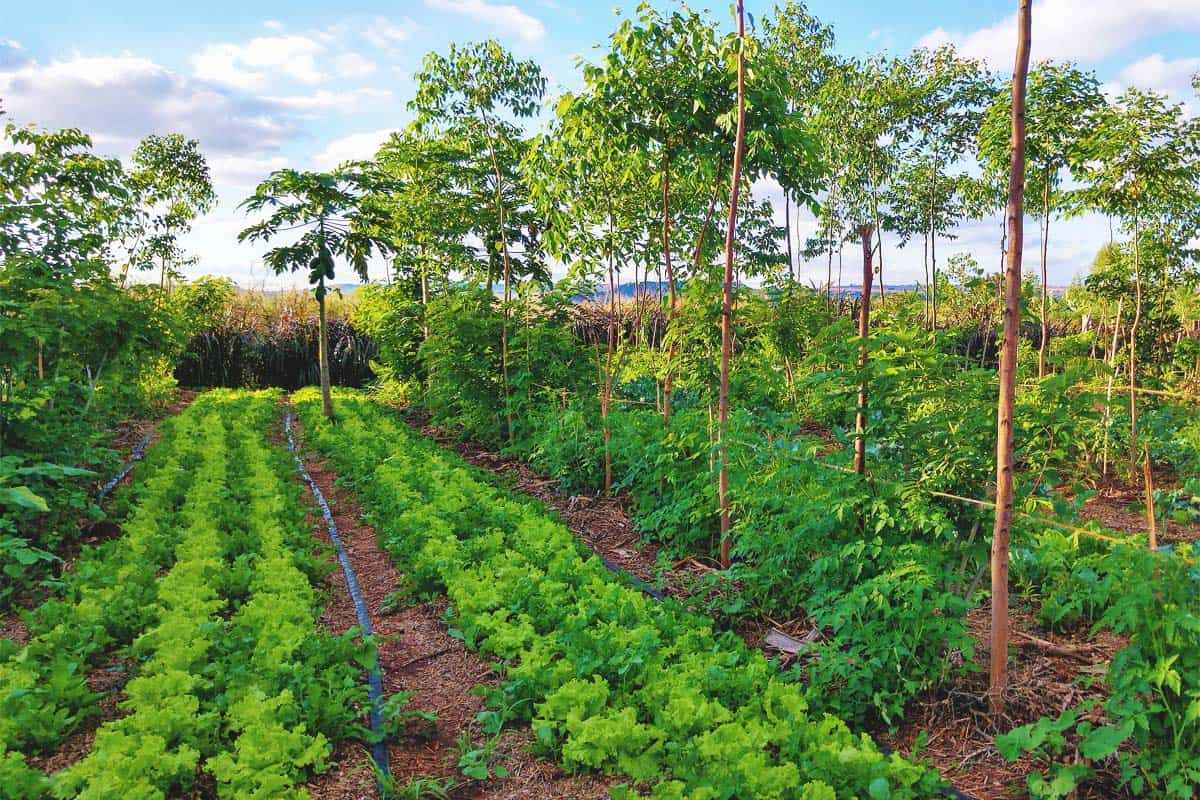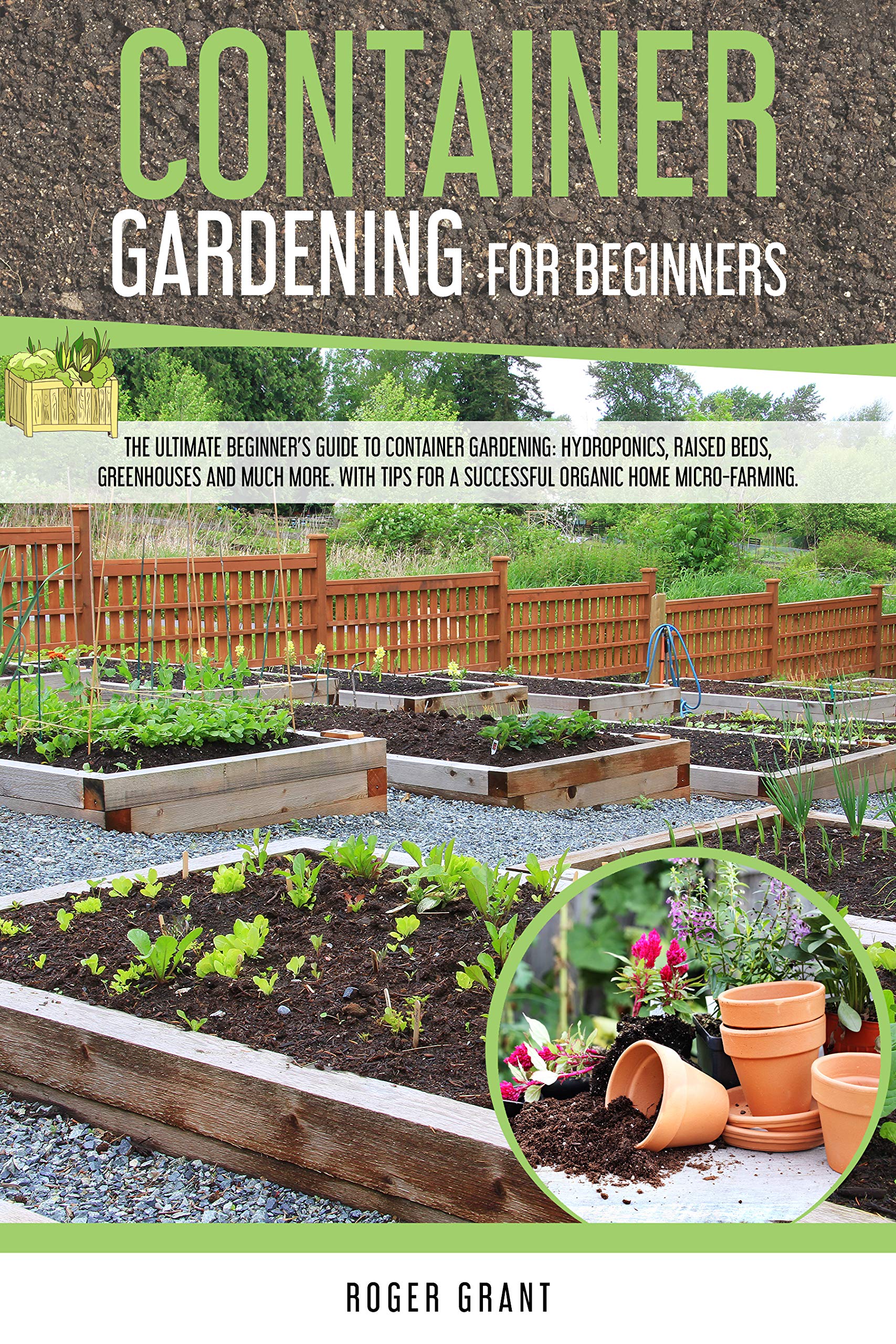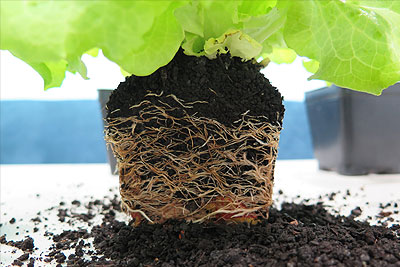Understanding the Role of Organic Gardening Enthusiasts in Sustainable Agriculture. Discover how organic gardening enthusiasts contribute To sustainable agriculture. Learn their impact on healthy practices, biodiversity, & our planet’s future!
What is Understanding The Role of Organic Gardening Enthusiasts in Sustainable Agriculture & how does it work?
Organic gardening enthusiasts promote sustainable agriculture practices. They focus on growing food without synthetic chemicals. This method enriches soil, conserves water, & supports biodiversity. Their efforts enhance local food systems. In addition, they advocate for environmental awareness. It fosters healthy ecosystems through natural gardening techniques. Composting, crop rotation, & companion planting are commonly used methods. Enthusiasts often share knowledge via workshops & community gardens.
Brief history of Understanding The Role of Organic Gardening Enthusiasts in Sustainable Agriculture

This movement traces back early 20th century. Pioneers like Sir Albert Howard emphasized soil health. In 1940s, interest grew after World War II. People turned towards organic practices for food security. By 1970s, books promoted sustainable farming techniques widely. Local movements began fostering community gardens. Over decades, organic gardening garnered support through education & awareness. Today, millions practice organic gardening worldwide for healthier food options.
How To implement Understanding The Role of Organic Gardening Enthusiasts in Sustainable Agriculture effectively
Start by researching local climate & soil types. Selecting appropriate crops enhances success rates. Use organic seeds & plant varieties suited for specific areas. Creating a compost system reduces waste while enriching soil. Encourage pollinators by planting flowers alongside vegetables. Collaborate with local gardening groups for shared resources. Workshops allow enthusiasts To learn from experienced gardeners. Regularly monitor plants for signs of pests or diseases.
Key benefits of using Understanding The Role of Organic Gardening Enthusiasts in Sustainable Agriculture
Organic gardening offers numerous benefits for individuals & communities. Healthier crops result from avoiding harmful pesticides. Beneficial insects thrive, promoting pollination. Soil health improves through organic practices, enhancing fertility. Chemical-free methods support safer food production. Biodiversity increases, leading To resilient ecosystems. Communities become stronger through shared gardening experiences. Additionally, organic gardening reduces carbon footprints significantly.
Challenges with Understanding The Role of Organic Gardening Enthusiasts in Sustainable Agriculture & potential solutions
Challenges include limited resources & knowledge gaps. Inexperienced gardeners may struggle with pest management. Weather conditions can also hinder gardening efforts. Solutions involve educational programs addressing these issues. Workshops can educate locals about effective practices. Community involvement fosters resource sharing among gardeners. Utilizing native plant species can adapt gardens for local climates.
Future of Understanding The Role of Organic Gardening Enthusiasts in Sustainable Agriculture
Future trends indicate increasing interest in organic practices. Technological advancements improve resource efficiency. Urban gardening initiatives gain momentum, addressing food deserts. Social media helps connect enthusiasts worldwide for shared ideas. More individuals will prioritize sustainability in food production. This shift may lead towards integrated community farming models. Overall, organic gardening’s popularity will continue expanding globally.

Understanding Organic Gardening: A Pathway To Sustainability
Organic gardening plays a significant role in sustainable agriculture. Enthusiasts embrace natural methods, fostering ecological balance. They cultivate food without synthetic fertilizers or pesticides. Their commitment contributes positively To environmental health. Thriving gardens enhance biodiversity, attract beneficial insects, & promote soil fertility. Sustainable practices pave pathways toward healthier ecosystems.
Many organic gardeners integrate principles aligned with indigenous practices. Examples can be found in approaches like The Three Sisters method. This method demonstrates companion planting benefits through corn, beans, & squash. Each plant supports one another, creating a synergistic environment. Such practices honor traditional knowledge while enhancing modern sustainable methods.
Defining Sustainable Agriculture
Sustainable agriculture emphasizes long-term ecological balance. It prioritizes health of soil, water, & ecosystems. Organic gardening thrives within this framework, utilizing crop rotation & composting. Gardeners enhance soil structure & nutrient availability. Regular cover cropping also protects soil from erosion while improving fertility.
This approach discourages monocultures, promoting diverse plant systems. Biodiversity fosters healthy ecosystems, reducing dependency on artificial products. Enthusiasts often select native plants that adapt well To local conditions. Incorporating various species strengthens pest resistance & supports pollinators.
Furthermore, practices in sustainable agriculture reduce greenhouse gas emissions. Improper use of chemicals can emit harmful substances into air. Organic gardeners strive for minimal impact, focusing on energy-efficient practices. They grow foods seasonally, reducing transportation footprints & relying on local resources.
Benefits of Organic Gardening
Organic gardening yields numerous benefits. Healthier foods result, rich in nutrients & free from harmful residues. Sustainable practices also enhance flavor profiles, leading To better culinary experiences. Enthusiasts often report more vibrant colors & superior taste from organic produce.
Another significant aspect involves community engagement. Local organic gardens become valuable educational spaces. They serve as platforms for sharing knowledge & promoting healthy eating. Engaging in community initiatives fosters cooperation among different demographics. Collaboratively growing food enriches communal bonds & promotes awareness of environmental issues.
Also, organic gardening encourages self-sufficiency. Homegrown produce provides a cost-effective alternative. Accessing fresh fruits & vegetables reduces reliance on grocery stores. Enthusiasts often share surplus harvests, benefiting communities. This mutual aid strengthens social ties & promotes food security.
Techniques Employed by Organic Gardening Enthusiasts
Soil Management
Soil health serves as foundation for successful organic gardening. Enthusiasts prioritize building fertile soils through organic amendments. Composting acts as main technique for enriching soil. Adding organic matter improves structure, moisture retention, & nutrient availability. Regularly mulching preserves soil moisture while suppressing weeds.
Utilizing cover crops enhances soil health between growing seasons. These plants protect soil from erosion & add nutrients. When tilled under, they decompose, enriching soil composition. Moreover, frequent soil testing empowers gardeners with knowledge about nutrient levels.
Organic gardeners often adopt no-till practices, fostering soil structure integrity. Disturbing soil can release carbon dioxide & harm beneficial microorganisms. By minimizing disturbance, enthusiasts support lush ecosystems developing beneath soil surface. Such practices stimulate natural processes promoting resilience.
Pest Management Strategies
Organic gardening relies heavily on prevention for pest management. Understanding ecosystem dynamics helps gardeners minimize infestations. Beneficial insects like ladybugs & lacewings naturally control pest populations. Gardeners attract these allies through diverse plantings & flowering plants.
Lively garden habitats promote natural predator-prey relationships. Enthusiasts also utilize companion planting methods, discouraging pest activity. For instance, marigolds ward off nematodes while attracting pollinators. These techniques foster balance within gardens while avoiding chemical interventions.
When pest outbreaks occur, gardeners opt for organic solutions. Neem oil or insecticidal soaps provide effective control. Utilizing these alternatives minimizes adverse environmental effects while ensuring plant health. Enthusiasts remain committed To maintaining biodiversity despite challenges.
Water Conservation Techniques
Water conservation techniques hold vital importance for organic gardening. With climate change affecting rainfall patterns, sustainable practices become essential. Enthusiasts embrace methods like rainwater harvesting, reducing dependency on municipal sources. Collecting rainwater promotes responsible resource management.
Drip irrigation systems efficiently deliver water directly To roots. This technique minimizes evaporation losses while conserving valuable resources. Enthusiasts often use mulch around plants, retaining moisture while suppressing competing weeds. These methods contribute positively toward sustainable gardening practices.
Additionally, assessing soil moisture levels minimizes overwatering. Regularly monitoring helps enthusiasts understand plant needs better. Groundcovers can also reduce evaporation, maintaining optimal soil moisture levels. This approach fosters resilience in gardens during challenging climate conditions.
The Community Aspect of Organic Gardening
Building Community Networks
Organic gardening cultivates vibrant community networks. Local gardeners share resources, knowledge, & experiences. Community gardens become places for collaboration & education. These spaces often unite individuals across various backgrounds, enriching social interactions.
Many enthusiasts participate in local farmers’ markets. They connect with consumers, enhancing appreciation for local produce. Through direct selling, they educate customers on sustainable practices. Establishing these relationships encourages a supportive environment for small growers.
Moreover, community workshops enhance awareness about organic gardening. Sharing skills through classes enables wider community involvement. This collaborative effort strengthens local food systems while promoting sustainability. Knowledge sharing fosters resilience within communities facing various challenges.
School Programs & Education
Organic gardening movements extend into educational realms. Schools often adopt gardening programs, engaging students in hands-on learning. These activities promote interest in science, health, & sustainability. Students learn about plant biology, ecology, & nutrition while nurturing seedlings.
Such programs instill values regarding environmental stewardship. Students develop a sense of responsibility toward nature & their community. Enthusiast-led initiatives help foster connections between youth & local agriculture.
Furthermore, school gardens provide fresh produce for school lunches. This initiative encourages healthy eating habits among children. Programs showcase benefits of growing food & understanding where meals originate. Such exposure correlates with improved food literacy & sustainable choices.
Encouraging Participation through Workshops
Workshops play essential roles in promoting organic gardening. Enthusiasts often organize events around specific topics. Topics range from composting techniques To pest management strategies. Interactive formats allow participants To gain confidence while practicing new skills.
Workshops create inclusive spaces for sharing ideas & experiences. Attendees meet others with similar interests, forming valuable connections. Collaboration can lead To innovative gardening solutions while fostering community spirit.
Successful workshops also encourage diversity. Inviting speakers with varied backgrounds promotes wider perspectives. These experiences broaden understanding, enriching organic gardening practices within communities. Knowledge exchanges cultivate friendships & partnerships that thrive beyond events.
- 🌱 Sustainable practices for healthier ecosystems
- 🌼 Promotion of biodiversity through varied plantings
- 🌾 Community engagement fostering cooperative efforts
- 🌍 Education on sustainable living practices
- 🍅 Encouragement of homegrown food for self-sufficiency
- 🌿 Innovative techniques for eco-friendly gardening
- 🍓 Enhancements in local food security initiatives
The Future of Organic Gardening Enthusiasts
Adapting To Climate Change
Climate change presents challenges for organic gardening enthusiasts. Adapting practices ensures resilience against extreme weather conditions. Gardeners explore new crops more suitable for changing temperatures. Experimentation facilitates successful cultivation while addressing uncertainties.
Understanding regional climate forecasts aids planning for future growing seasons. Season extension techniques, such as hoop houses, provide advantages during unpredictable weather. These adaptations allow for consistent cropping, enhancing food security & community resilience.
Innovations in organic gardening lay pathways toward sustainable practices. Scientific advancements contribute deeper insights into soil biology & pest management. Embracing these developments can lead To improved strategies for organic gardening.
Advocacy & Policy Changes
Advocacy remains crucial for organic gardening enthusiasts. Supporting policies promoting sustainable agriculture enhances momentum. Local, regional, & national efforts focus on bolstering organic funding & research. Engaging with policymakers creates pathways for significant changes.
Grassroots movements help raise awareness about benefits of organic farming. Building coalitions among various stakeholders empowers initiatives driving sustainability. Collective voices amplify issues regarding food systems, environmental health, & climate change.
Consumer education plays a significant role in advocacy. Educating communities about sustainable practices empowers informed choices. Increased awareness encourages individuals To support local farmers & organic products. This grassroots movement fosters healthier environments for future generations.
Technological Integration & Innovation
Technology significantly impacts organic gardening practices. Innovative tools enhance efficiency & productivity while supporting eco-friendly methods. Mobile apps assist in tracking garden progress, pest identification, & planning. These technological advancements empower enthusiasts To make informed decisions.
Moreover, techniques like precision agriculture provide vital data. Understanding soil moisture, nutrient levels, & plant health enhances gardening practices. Utilizing technology ensures better resource management while promoting sustainability. Gardeners remain informed about best practices & emerging trends.
As technology evolves, organic gardening enthusiasts adapt accordingly. Integrating new methods with traditional knowledge fosters innovative solutions. This synergy ensures resilience against modern challenges faced by agriculture.
What is Organic Farming? | Agriculture | Biology | FuseSchool
Understanding the Role of Organic Gardening Enthusiasts in Sustainable Agriculture What is Organic Farming? | Agriculture | Biology | FuseSchool Understanding the Role of Organic Gardening Enthusiasts in Sustainable Agriculture
Understanding Organic Gardening Enthusiasts
Organic gardening enthusiasts play an essential role in sustainable agriculture. They promote environmental stewardship & responsible farming. These individuals focus on cultivating healthy, chemical-free crops. Their techniques enhance soil health, support biodiversity, & reduce pollution. Such benefits resonate with broader ecological goals. Organic practices align closely with natural ecosystem processes. Enthusiasts engage communities & inspire others through workshops & gardens.
Principles of Organic Gardening
Organic gardening follows specific principles aimed at preserving natural resources. Crop rotation helps maintain soil fertility while preventing pests. In addition, composting enriches soil & reduces waste. By utilizing organic fertilizers, gardeners boost plant health without adverse environmental effects. Mulching prevents weeds & conserves moisture, enhancing water use efficiency.
Another important principle involves avoiding synthetic pesticides & herbicides. Instead, organic gardeners rely on natural pest management strategies. These can include attracting beneficial insects or using companion planting techniques. Crop diversity further strengthens ecosystem resilience. This variety provides habitats for various organisms & creates a balanced environment.
Educational outreach forms yet another critical aspect of organic gardening. Gardeners often share their knowledge with others. Workshops & community gardens serve as learning platforms. Through these initiatives, they cultivate a deep understanding of organic principles. This sharing fosters a sense of community & encourages sustainable practices.
Community Engagement & Education
Community gardens serve as focal points for engagement. They allow locals To connect through gardening activities. Participants share experiences, knowledge, & resources. This collaboration fosters friendship & builds a united front against unsustainable practices. Furthermore, community gardens showcase organic gardening’s benefits. They visibly demonstrate environmental stewardship & sustainable food production.
Workshops offer another avenue for education. Enthusiasts often host sessions covering various topics. These may include composting techniques, pest control, or soil health management. Attendees gain hands-on experience & practical insights. Over time, this helps create a culture of sustainability within communities.
Initiatives like school gardens also make a significant difference. By involving students, organic gardening teaches essential life skills. Children learn about nutrition, responsibility, & environmental impact. Engaging in such projects empowers them To take ownership of their environment. This early exposure cultivates future generations of environmentally conscious citizens.
Practical Techniques Used by Organic Gardeners
Organic gardeners employ several techniques that bolster sustainability. Nutrient management remains a key focus area. Gardeners use crop rotation To prevent nutrient depletion & control pests. Additionally, intercropping facilitates diversity which strengthens ecosystem stability. These practices lead To improved soil health & productivity.
Composting acts as another cornerstone for organic gardening. By recycling waste materials, gardeners create nutrient-rich soil amendments. This boosts plant health while minimizing landfill waste. Moreover, effective watering techniques play a crucial role. Techniques such as drip irrigation help conserve water while ensuring plants receive adequate hydration.
Cover crops are valuable for maintaining soil structure. These plants protect against erosion & enhance soil fertility. During off-seasons, they fix nitrogen & replenish nutrients naturally. Enthusiasts embrace these practices, ensuring a healthy growing environment year after year.
Environmental Benefits of Organic Gardening
Organic gardening significantly enhances environmental health. By eschewing synthetic chemicals, these practices help reduce pollution. Improved soil quality contributes To cleaner water sources. Healthy soil naturally filters contaminants, protecting water supplies. Furthermore, organic gardening promotes biodiversity. A diverse ecosystem supports a wider variety of plants & wildlife.
Carbon sequestration represents another critical environmental benefit. Organic soils have a greater ability To store carbon. This process mitigates climate change effects. Healthy ecosystems absorb carbon dioxide, reducing greenhouse gases in The atmosphere. As a result, organic practices contribute positively To global climate goals.
Reduced reliance on non-renewable resources constitutes a vital advantage. Organic gardening emphasizes local practices & resources. Enthusiasts often source seeds from local suppliers. They prioritize localized methods of farming, decreasing transportation energy use. This approach encourages sustainable practices on a larger scale.
Supporting Local Economies Through Organic Gardening
Organic gardening can significantly support local economies. By purchasing from local farmers’ markets, consumers stimulate regional agricultural growth. This financial support helps small farms thrive amid large agricultural enterprises. Local economies benefit because money circulates within communities. When consumers buy locally, they help create jobs & foster entrepreneurship.
Community-supported agriculture (CSA) initiatives allow consumers direct access To local produce. Consumers pay upfront for seasonal shares, ensuring farmers have capital at The beginning of each season. This model strengthens relationships between growers & eaters. It also provides a sustainable income model for farmers, reducing reliance on traditional markets.
Moreover, promoting organic gardening practices increases awareness. As more people recognize its advantages, demand for organic products rises. This shift encourages local growers To adopt sustainable practices. Enthusiasts can influence consumer choices towards healthier, environmentally friendly options. This can lead To long-term changes in agricultural production patterns.
Comparison: Conventional vs. Organic Gardening Enthusiasts
| Aspect | Conventional Gardening | Organic Gardening Enthusiasts |
|---|---|---|
| 🔬 Chemical Use | High use of synthetic fertilizers | Focus on natural methods |
| 🌱 Soil Health | Short-term boosts with chemicals | Long-term sustainability through composting |
| 🌍 Environmental Impact | Pollution & runoff problems | Enhanced biodiversity & ecosystem restoration |
| 👩🌾 Community Involvement | Limited public engagement | Strong community connections & workshops |
| 💧 Water Management | Less efficient usage | Emphasis on conservation techniques |
Personal Experience with Organic Gardening
My journey into organic gardening started years ago. I began with a small vegetable garden. Over time, I learned valuable lessons about soil health & pest management. Embracing organic practices transformed my gardening experience. Observing The ecosystem thrive around my plants was rewarding. Community involvement in local workshops helped me grow further.
Future of Organic Gardening in Sustainable Agriculture
As awareness grows, organic gardening holds significant promise. Communities increasingly recognize its benefits. Future generations aspire To build a healthier world. Sustainable practices will continue evolving, meeting challenges head-on. By embracing renewable resources & conscious choices, gardening enthusiasts will shape agriculture’s future.
Balancing food production & environmental responsibility remains critical. Enthusiasts play a pivotal role in this ongoing conversation. Education & community involvement will amplify organic gardening’s impact. Integrating advanced techniques & knowledge fosters sustainable practices for all. A future rich in biodiversity & healthy ecosystems awaits those committed.
Adaptation & resilience characterize The organic gardening movement. By challenging conventional practices, organic gardeners redefine sustainable agriculture. Together, they will cultivate a healthier planet while nourishing their communities. This collective effort supports a thriving future for all.
For more insights on organic farming, check this link & explore sustainable agriculture practices here sustainable agriculture. Also, discover community resources at Garden AFA.

What do you call someone who advocates for organic gardening methods?
Someone who advocates for organic gardening methods is often referred To as an organic gardener or a sustainable gardener. They promote practices that enhance soil health & biodiversity while avoiding synthetic chemicals.
What are The benefits of organic gardening?
Organic gardening offers numerous benefits, including improved soil quality, increased biodiversity, & healthier plants. It also minimizes environmental impact & reduces exposure To harmful chemicals for both gardeners & consumers.
How can I become involved in organic gardening?
To become involved in organic gardening, you can start by learning about organic practices, participating in local gardening groups, & experimenting with organic techniques in your own garden. Taking courses or workshops on organic methods can also be helpful.
What techniques are commonly used in organic gardening?
Common techniques in organic gardening include crop rotation, companion planting, composting, & The use of natural pest control methods. These practices help maintain soil fertility & prevent pests without The use of synthetic chemicals.
Is organic gardening more expensive than traditional gardening?
While organic gardening can sometimes have higher upfront costs due To organic seeds & materials, it can be more cost-effective in The long run. By fostering healthy soil & ecosystems, organic gardens may require less supplementation & inputs over time.
Can organic gardening be done in urban areas?
Yes, organic gardening can be effectively practiced in urban areas through community gardens, rooftop gardens, & even small balconies. Many urban gardeners utilize containers & vertical gardening techniques To maximize their space.
What plants are best suited for organic gardening?
Almost any plant can be grown using organic practices, but some varieties are particularly well-suited for these methods. Heirloom vegetables, native plants, & perennials that attract beneficial insects are excellent choices for organic gardening.
How does organic gardening impact The ecosystem?
Organic gardening positively impacts The ecosystem by promoting biodiversity, enhancing soil health, & reducing pollution from chemical fertilizers & pesticides. It encourages The balance of natural ecosystems, benefiting both plants & wildlife.
Are there certifications for organic gardening?
Yes, there are certifications for organic gardening, typically regulated by government standards. For commercial growers, meeting these standards can allow them To label their products as organic. Home gardeners can practice organic gardening without formal certification.
What challenges might I face when practicing organic gardening?
Challenges in organic gardening may include dealing with pests & diseases without synthetic treatments, managing soil nutrients organically, & potential lower yields compared To conventional methods. However, many of these challenges can be mitigated through knowledge & proper techniques.
Conclusion
organic gardening enthusiasts play a vital role in promoting sustainable agriculture. By choosing To grow food without harmful chemicals, they not only improve their health but also protect The environment. These passionate gardeners embrace practices that enrich The soil, support biodiversity, & conserve water.

Their commitment inspires others To adopt similar habits, creating a community that values eco-friendliness. As more people join this movement, we can hope To see a shift toward healthier food systems & a cleaner planet. So, let’s continue To celebrate & support The efforts of these dedicated gardeners for a better future!
